SEEDS Showcase
Student stories, research projects and knowledge exchange events
Welcome to the SEEDS (Social Ecological Economic Development Studies) Sustainability Program Showcase. SEEDS creates applied research and interdisciplinary partnerships between students, faculty, staff and community partners to advance sustainability ideas, policies, and practices and create societal impacts by using the Campus as a Living Laboratory. You can find out more about these impact stories here.
-
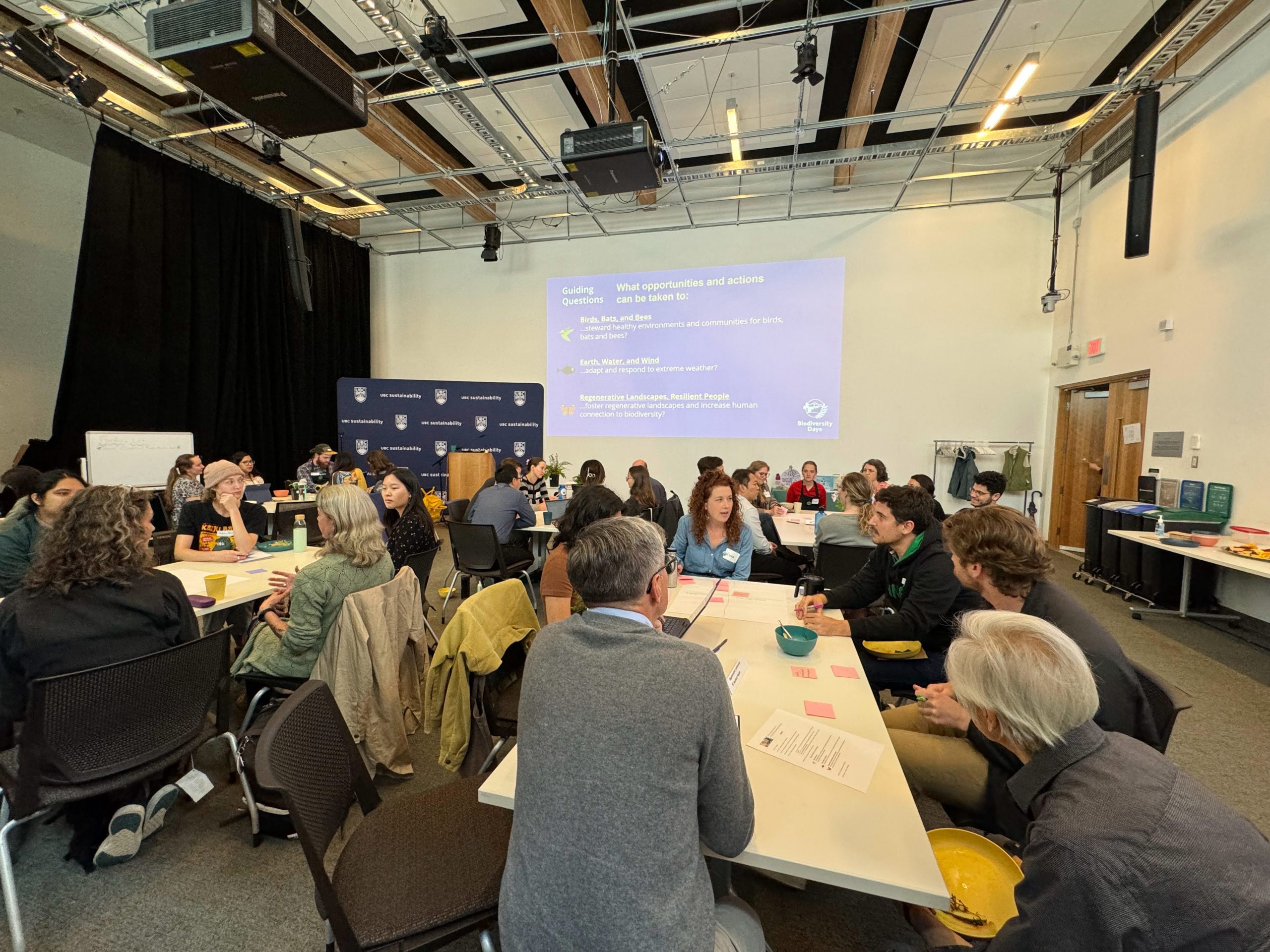
Biodiversity Connects Us: A Student-Led Research Showcase 2024
—
by
Are you curious about how biodiversity connects us all? Every year, SEEDS Sustainability and the UBC Botanical Garden collaborate on a showcase that highlights UBC student research as a part of Biodiversity Days, a month-long event to… read more.
-
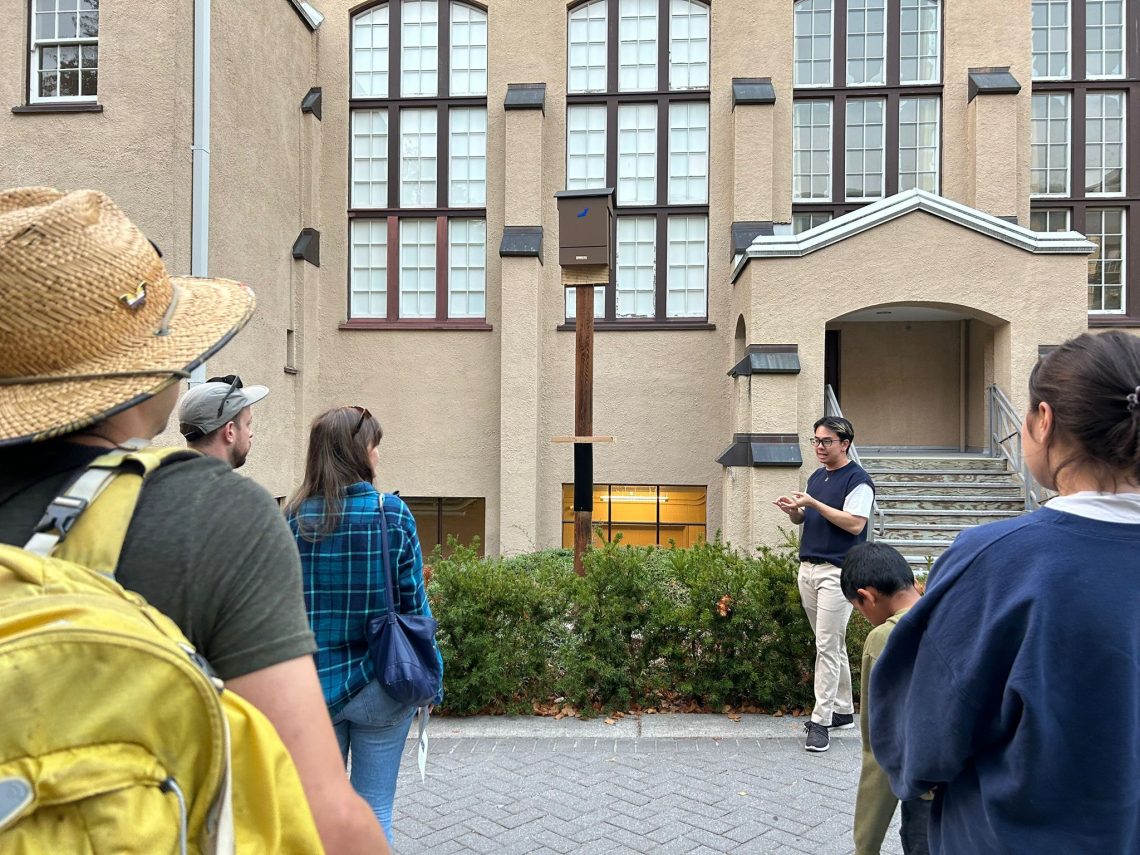
SEEDS Project Highlight: Exploring Wildlife-Inclusive Environments & Coexistence with Bats on UBC Campus
—
by
Written by: Timothy Wong, An Hoang, Hannah Griebling and Georgia Stanley Pictured: The new free-standing bat box recently installed in front of the UBC Opera House. The dual box design allows for different temperature conditions throughout the… read more.
-

Research Spotlight: Tree Inventory
—
by
Along Main Mall, within building courtyards, and everywhere in between, trees play an important part in providing essential ecosystem services, such as carbon sequestration and mitigating the urban heat island effect. In order to conduct meaningful research… read more.
-
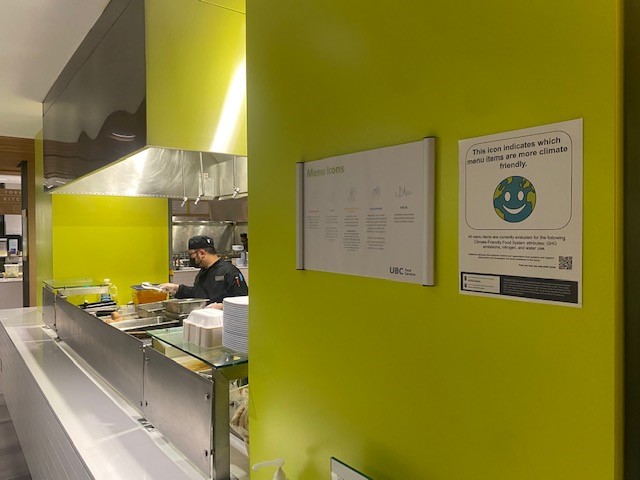
Assessing the Impact of the New Climate-Friendly Food label on UBC’s Campus
—
by
This first UBC Climate-Friendly Food System Label research project was carried out in three main phases from Summer 2021 to May 2022, where the research teams tested different icon iterations’ impact on the UBC community behaviour. read more.
-
Biodiversity Days 2024: Bird Walk Recap
Did you miss our Biodiversity Days Bird Walk event on May 5th? No worries! My name is Christine, and I’m the student Urban Biodiversity Coordinator with UBC SEEDS Sustainability. I’m here to share a recap of the walk and what we learned from expert birders Bev and Bill Ramey. The…
-
Biodiversity Connects Us: A Student-Led Research Showcase 2024
Are you curious about how biodiversity connects us all? Every year, SEEDS Sustainability and the UBC Botanical Garden collaborate on a showcase that highlights UBC student research as a part of Biodiversity Days, a month-long event to celebrate and uplift biodiversity. This event brings together UBC students, faculty, staff, and…
-
Climate-Friendly Food Systems: Research to Action Showcase
Join us on April 25th, 2-4 pm at CIRS, BC Hydro Theatre. Hosted by UBC SEEDS Sustainability Program and UBC Food Services, the showcase will highlight student research and recommendations that advance CAP 2030 actions and goals.
-
Biodiversity Connects Us: A Student-Led Research Showcase
Curious about how biodiversity connects us all? Please join us on Thursday, May 2 from 2:30 to 4:00 in the Centre for Interactive Research on Sustainability (CIRS), BC Hydro Theatre to learn about student-lead research on campus!
“The most interesting aspect of working with SEEDS is learning how people from different backgrounds and expertise can work together towards the same goal . . . Therefore, I learned to approach problems from different angles and come up with different solutions. This also poses some challenges, such as how to solve problems while meeting the needs of each team member and client.”
Undergraduate student, Dept of Statistics, Faculty of Science, 2022
-
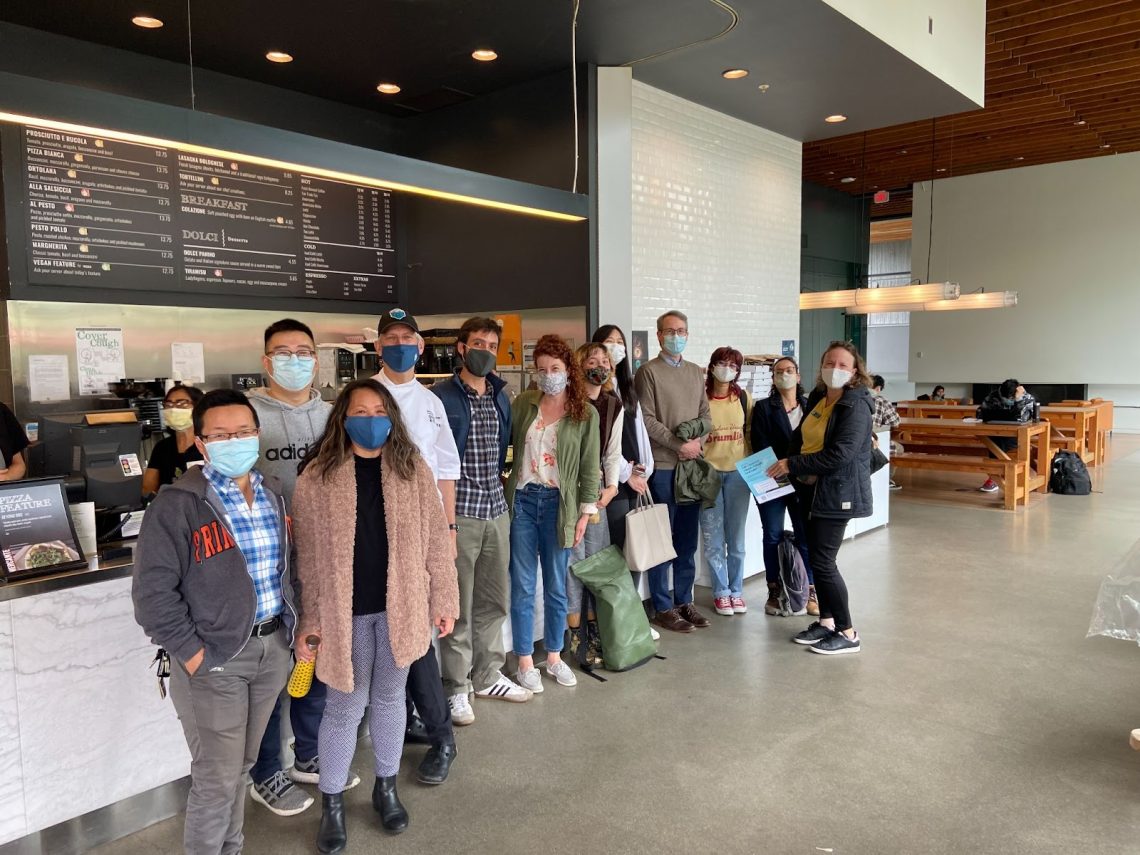
UBC Introduces its First Climate-Friendly Food System Label
—
by
This innovative multi-actor project was made possible thanks to the skills, passion, and commitment of the students and faculty members through a strong collaboration with Food Services supported by the Climate-Friendly Food System Action Team, working over… read more.
-
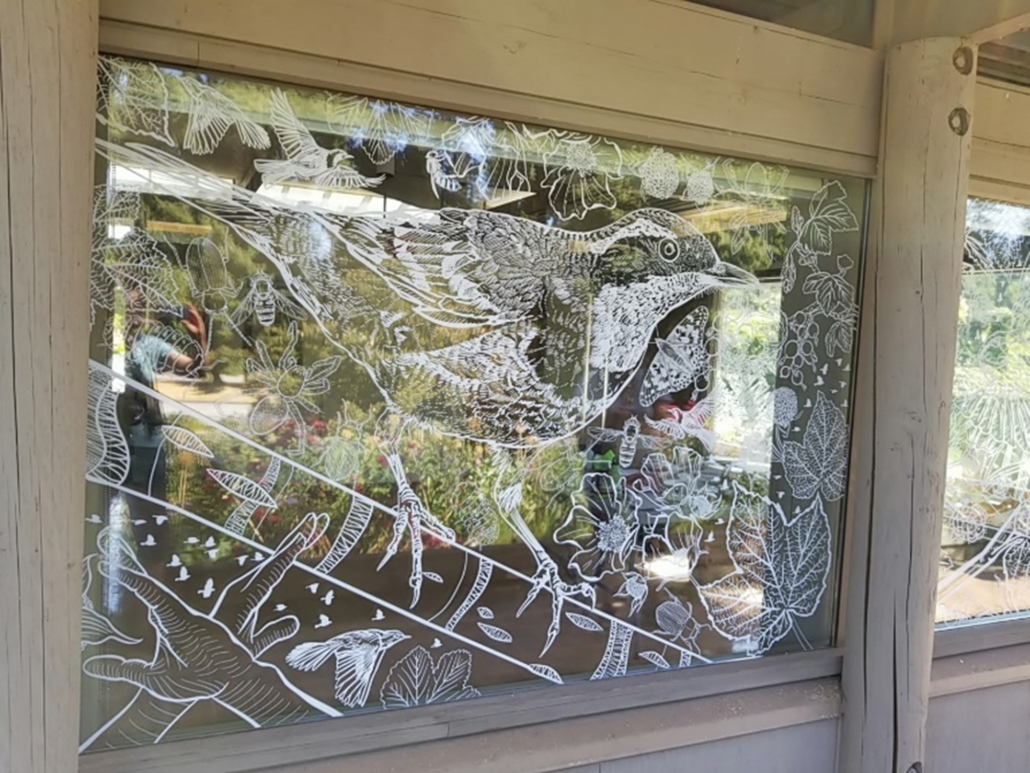
The Value of Research in Creating Bird-Friendly Campuses
—
by
Cross-posted from FLAP Canada, originally written by Dr. Krista De Groot — a Landbird Biologist and the BC Breeding Bird Survey Coordinator with Canadian Wildlife Service, Environment and Climate Change Canada. High collision mortality was documented during… read more.
-
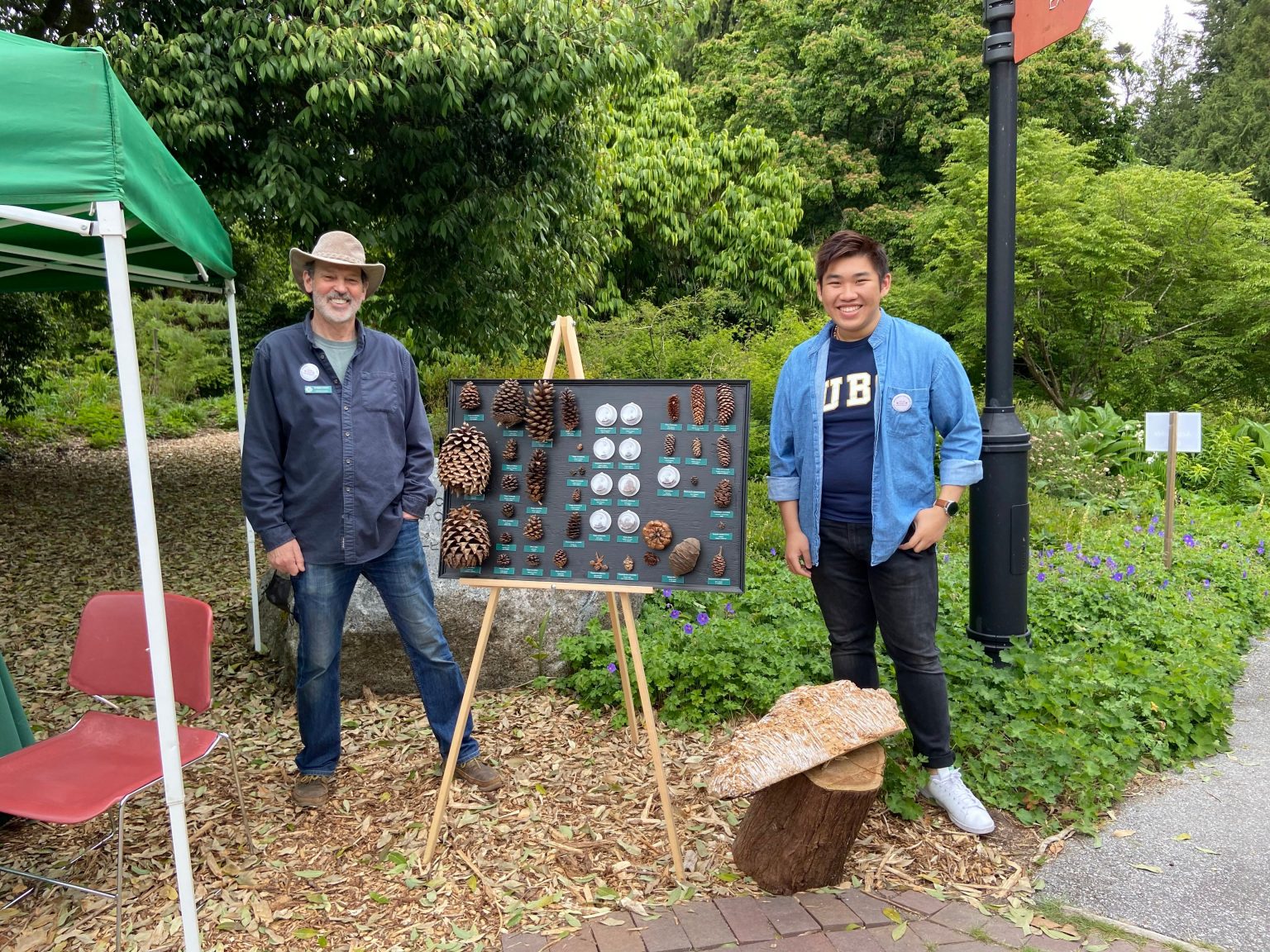
David Suzuki Foundation’s Butterflyway Project: A SEEDS Citizen Science Collaboration
—
by
Cross-posted from the UBC Botanical Garden’s Sustainability Blog UBC biology student Alex Wong shares his insights from working with the citizen science project, the Butterflyway Project, and the importance of citizen science in nurturing people’s love for… read more.
-
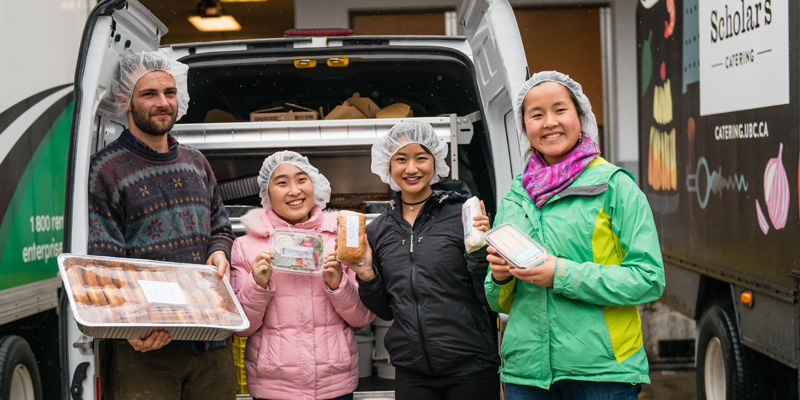
Recovered Food Buffet
—
by
Students from an LFS 450 class helped Daniel Chiang, Executive Sous-Chef from UBC Food Services select edible food from three residence kitchens, Sage Restaurant, the Point Grill, and four retail outlets. With this, they created UBC’s first… read more.
“I had a chance to work with a large team. It helped me gain communication and team skills. Importantly, this project gave me an opportunity to test out behavioural interventions outside a laboratory context”
Graduate Student, Dept of Psychology, Faculty of Arts, 2022
-
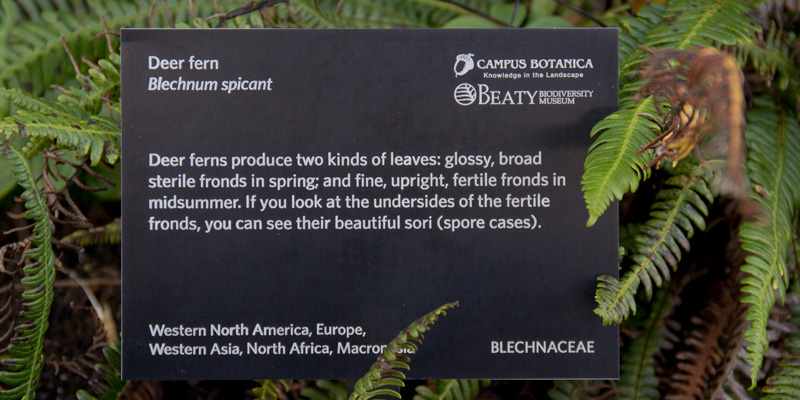
Campus Botanica
—
by
For this project, Creative Writing student, Saskia Wolsak, created 120 botanical signs for plant species across campus. Each sign features the name of the plant in Latin, English, and the species’ local language, as well as an unusual fact… read more.
-

Home/Away
—
by
Student, Chris Evans, explores the concepts of “refuge”, “home”, and “identity” in this art installation that combines species-specific bird houses with narratives from UBC students who came to Canada as political refugees. Chris hopes that his work… read more.